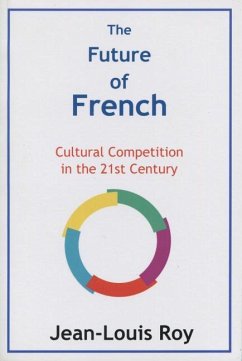Globalisation has transformed the economic system around the world and has had a major impact upon every country. Children in China now are obliged to learn English from primary school. English, without a doubt, is the global language of technology. All around the world, there is the growing infusion of English phrases and word into almost every language. The linguistic question, also raises the issue of cultural survival.Can indigenous cultures survive the onslaught of the powers of globalization? In the 21st century, will we witness the demise of numerous cultural groups and regional identities? How can certain historical communities survive? Is there a future for certain languages and linguistic groups in the 21st century? How can certain historical communities such as the anglophone, hispanophone, arabophone, or even countries such as China, India, Russia sustain their cultural and linguistic identities in the 21st century?These questions, specifically with regard to French, are a continuing concern for Quebec. But these very questions of cultural competition and linguistic survival are also part of the discourse of la francophonie and many other countries and regions around the world. This volume makes a major contribution to this discussion. In a thorough, highly readable and well organized series of chapters, the author places these problems and challenges clearly before us. The chapters include: -A world of communities-The preponderance of anglo-saxon-Towards global cultural competition-La Francophonie-The French Language-La Francophonie and democracy Niger, Togo, Ivory Coast, Congo, Haiti etc.-Education-Sustainable development"




![A New Pocket Dictionary of the English and French Languages [microform]: in Two Parts: 1. French and English; 2. English and French: Containing All th A New Pocket Dictionary of the English and French Languages [microform]: in Two Parts: 1. French and English; 2. English and French: Containing All th](https://bilder.buecher.de/produkte/65/65487/65487782m.jpg)



